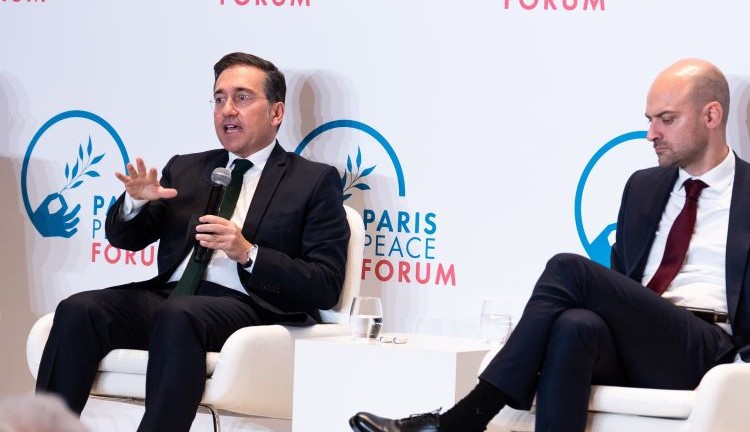Eduardo González
Foreign Minister José Manuel Albares announced this Thursday in Paris that Spain has offered the START Team, the field hospital of the Spanish Agency for International Development Cooperation (AECID), to Jamaica in response to the medical needs expressed by the country after Hurricane Melissa, as well as to Gaza “as soon as possible.”
Since its launch in 2018, the START Team (Spanish Technical Aid Response Team, known as the “Red Vests”) has carried out humanitarian missions in Mozambique (following Cyclone Idai in 2019), Bata (Equatorial Guinea, following the explosion of an ammunition depot that devastated part of the city in 2021), Haiti (following the August 2021 earthquake), Turkey (following the 2023 earthquakes), and in the Panamanian province of Darién (late 2024), one of the most dangerous migration routes in Latin America.
The START project, whose medical team belongs to the public health system, has the capacity to deploy, within a maximum of 72 hours, to any corner of the world where a humanitarian emergency occurs. Spain, along with Italy and France, is one of the three EU countries with a team of this kind.
Albares made this announcement during his address at the Paris Peace Forum, where he expressed Spain’s commitment “to the full respect of international humanitarian law in a consistent and decisive manner, regardless of the context or the actors involved.”
In his remarks on the panel “Safeguarding International Humanitarian Law,” which also included the participation of French Foreign Minister Jean-Noël Barrot, Albares affirmed that “international humanitarian law and the Geneva Conventions are not optional” and, therefore, advocated for redoubling efforts to guarantee the protection of civilians, humanitarian workers, and medical personnel.
“We are witnessing this in Gaza, where the work of UN agencies, particularly UNRWA, is restricted,” he noted. “We must ensure that humanitarian aid can enter the Gaza Strip impartially and independently,” he added.
The Paris Peace Forum, organized by France, which began this Wednesday and concludes this Thursday, brings together more than 300 speakers (including former Mexican Foreign Minister and former OECD Secretary-General Ángel Gurría, who is chairing the forum; French President Emmanuel Macron; former UN High Commissioner for Human Rights Michelle Bachelet; former President of the UN General Assembly María Fernanda Espinosa; and the Foreign Ministers of Spain and France, among others) and some 3,000 participants to discuss the situations in Gaza, Ukraine, and the Great Lakes region, the climate emergency, artificial intelligence, and cuts to humanitarian aid budgets.
On the other hand, Albares emphasized that Spain supports all efforts aimed at combating impunity for international crimes. “We firmly support the work of the International Criminal Court, whose action, unfortunately, is more necessary today than ever before. The Court must be able to fulfill its mandate without interference or threats,” he affirmed.
The minister also noted that Spain has increased its financial contributions to the International Criminal Court, with €1.1 million in 2025 and €2 million in 2024, in order to strengthen its work. “The fight against impunity for crimes under international law is essential to guarantee justice, protection, and reparations for victims. Perpetrators of violations of international humanitarian law cannot go unpunished.”
